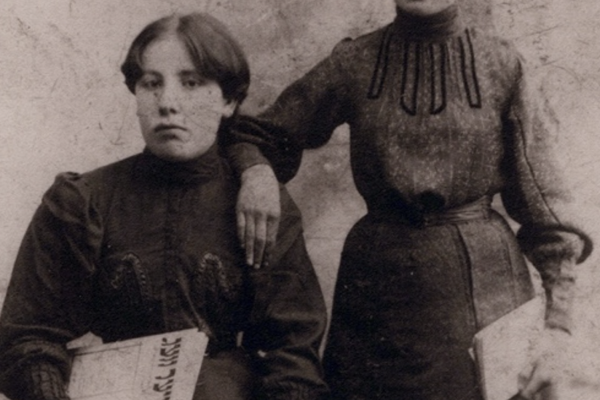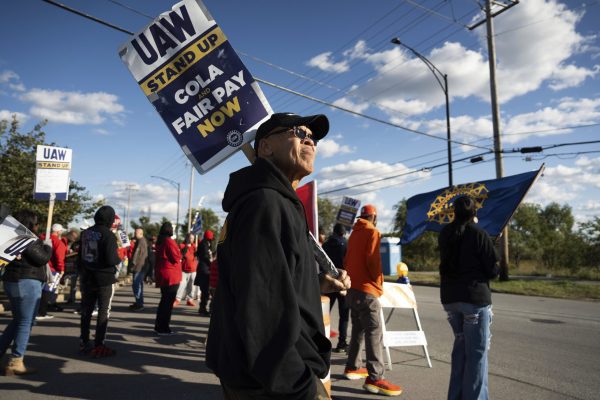In the summer of 1997, the Supreme Court held that no US citizen possesses a constitutionally protected right to physician-assisted suicide (PAS). The ruling left it open to individual states to provide legislative guarantees of that right for some citizens. That same year, the citizens of Oregon did just that by refusing to override the 1994 Death with Dignity Act, which legalized PAS for those with terminal illnesses. In contrast, voters in Michigan rejected a 1998 ballot measure that would have guaranteed this right to its terminally ill citizens. Over the next decade, many more of us will likely be asked to decide under what conditions, if any, the legal right to PAS should be granted. Two new collections of essays contribute to the public debate on this topic, with varied results.
The cover illustration for Euthanasia and Physician-Assisted Suicide: For and Against portrays the book's likely impact: two sets of muscular arms pull a rope in opposite directions, neither one gaining any ground. R.G. Frey and Gerald Dworkin together defend the "for" position, by presenting ad hominem arguments against their opponents. Frey begins by exploring the widely recognized—and at the moment constitutionally protected—right to refuse lifesaving treatment, traditionally known as "passive voluntary euthanasia" (PVE). He then disputes the cogency of distinctions between the right to PVE and the more controversial rights to PAS and "active voluntary euthanasia" (AVE)—that is, the right to have someone else end one's life through a quick and painless procedure. Each practice, Frey repeatedly observes, involves a physician helping a competent and willing patient to end his or her life. The difference in the causal mechanism at work in these practices makes no moral difference. Dworkin concedes that the legalization of PAS and AVE could have negative consequences: it might increase the risk that "vulnerable" populations—the elderly, the disabled, and the under-insured—will be pressured into a premature death. Nonetheless, he observes, this same risk already exists with PVE. Since, he argues, there is no justification for denying PVE by forcing a dying patient to receive futile treatment, so too there is no justification for denying certain patients a "painless and dignified" death through PAS or AVE.
Dworkin and Frey are instructive but not convincing. Surely, one suspects, there is something to the traditional moral distinction between killing and letting die. Unfortunately, in her defense of the "against" position, Sissela Bok does not directly address Frey and Dworkin's contention that PAS and AVE are morally on a par with PVE. Instead, she describes at length the concerns of both proponents and opponents of PAS and AVE, offers a quick history of philosophical positions on suicide, worries about possible abuses that might follow from the legalization of PAS and AVE in the United States, and concludes with an eloquent appeal for more humane care at the end of life. One can agree with every point she makes without believing that the Dworkin and Frey arguments have been touched, much less refuted.
Physician-Assisted Suicide: Expanding the Debate is a much more satisfying collection. The perspectives of more than thirty constitutional scholars, philosophers, physicians, and policy analysts give the reader a much clearer, if more complex, picture of what is at stake. Though its editors all support the legalization of PAS in the United States, the volume raises serious questions about the implications of a public policy that no longer distinguishes sharply between PVE and PAS. John D. Arras, for example, argues that there is an important distinction between PVE and PAS, because "the forced imposition of medical treatment against a patient's will arguably constitute a trespass, or technically a legal battery, so profound that it simply cannot be justified," whereas "the failure to offer a deadly drug to a dying patient" represents, at most, a "failure of mercy."
If, however, this "failure of mercy" is so significant as to be unjustifiable, then the difference that Arras identifies between PVE and PAS is irrelevant to the question of whether PAS should be legal. Naturally, Dworkin would claim that a society that denies its citizens the right to PAS reveals a substantial "failure of mercy." He argues, "What is at stake in both cases, in the context of end-of-life decisions, is the ability of patients to end great suffering and to control the manner of their death. It seems arbitrary for the society to allow one but forbid the other on the grounds that the denial of the former has an additional bad feature in one case but not the other." However, Dworkin overstates his case when he suggests that at stake in the legalization of PAS are both (a) "the ability of patients to end great suffering" and (b) the ability "to control the manner of their death."
As many contributors to Physician-Assisted Suicide point out, currently legal, if not commonly available, practices such as adequate pain medication, terminal sedation, and refusal of nutrition and hydration all offer what Dworkin identifies as the first thing at stake in the debate over PAS: "the ability of patients to end great suffering." Great suffering, then, cannot be the primary evil that only the legalization of PAS can prevent. That leaves us with (b): "the ability to control the manner of … death." Indisputably, PAS offers the ability to stay in control of one's life until one decides to end it. As Margaret P. Battin observes, "We cannot keep from dying altogether, of course. But by using directly caused death, as in physician-assisted suicide, it is possible to control many of dying's features: its timing in the downhill course of a terminal disease, its place, the exact agents which cause it, its observers, and so on." In contrast, adequate pain medication, terminal sedation, and refusal of nutrition and hydration often threaten the little control that one might have at the end of one's life.
But if control over the manner of death is the primary good that justifies the legalization of PAS, then, as Felicia Ackerman argues, the terms of the debate must change. In most discussions of the legalization of PAS, the alleged right to PAS is restricted to the terminally ill, or at least to the terminally ill and severely disabled. This restriction makes sense if the primary evil prevented by PAS is great suffering. But if the primary evil is loss of control over the manner of our death—where, how, and with whom it occurs—then we all could benefit from PAS. It seems to follow, then, that if the right to PAS is justified at all, it is justified for all competent adults.
Once we arrive at this position, it becomes clear that the stakes over the legalization of PAS are very high indeed. Suicide would undoubtedly become more common if made convenient, pleasant, and authorized by society and law: imagine suicide clubs, with pills and alcohol served to partying customers. Even if PAS is restricted arbitrarily to the terminally ill, many will feel significant pressure to speed things along at the end of their lives. The ability to determine the location, timing, and participants in our death is arguably an important good. But it is not obvious that it is so great a good that it adequately compensates for the inevitable loss of human life that will accompany it.
One thing is obvious: many people in the United States experience unnecessary suffering at the end of their lives, not only because they lack access to adequate pain relief, but also because the last months of their lives create significant financial, physical, and emotional burdens to loved ones. This sort of suffering could be alleviated by guaranteeing universal access to decent end-of-life care. It could also be eliminated by guaranteeing those in physical and emotional pain the right to self-extermination. It is lamentable that this latter right is more likely to be granted.








